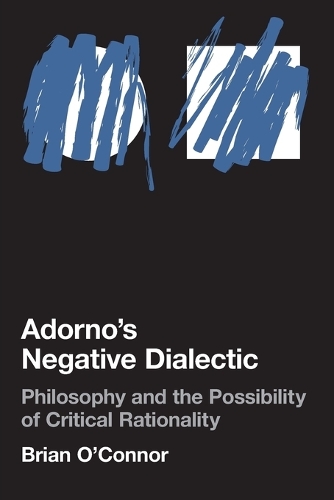
Adorno's Negative Dialectic: Philosophy and the Possibility of Critical Rationality
(Paperback)
Publishing Details
Adorno's Negative Dialectic: Philosophy and the Possibility of Critical Rationality
By (Author) Brian O'connor
MIT Press Ltd
MIT Press
12th August 2005
United States
Classifications
Professional and Scholarly
Non Fiction
193
Physical Properties
Paperback
224
Width 152mm, Height 229mm, Spine 13mm
318g
Description
The purely philosophical concerns of Theodor W. Adorno's negative dialectic would seem to be far removed from the concreteness of critical theory; Adorno's philosophy considers perhaps the most traditional subject of "pure" philosophy, the structure of experience, whereas critical theory examines specific aspects of society. But, as Brian O'Connor demonstrates in this highly original interpretation of Adorno's philosophy, the negative dialectic can be seen as the theoretical foundation of the reflexivity or critical rationality required by critical theory. Adorno, O'Connor argues, is committed to the "concretion" of philosophy- his thesis of nonidentity attempts to show that reality is not reducible to appearances. This lays the foundation for the applied "concrete" critique of appearances that is essential to the possibility of critical theory. To explicate the context in which Adorno's philosophy operates-the tradition of modern German philosophy, from Kant to Heidegger-O'Connor examines in detail the ideas of these philosophers as well as Adorno's self-defining differences with them. O'Connor discusses Georg Luc cs and the influence of his "protocritical theory" on Adorno's thought; the elements of Kant's and Hegel's German idealism appropriated by Adorno for his theory of subject-object mediation; the priority of the object and the agency of the subject in Adorno's epistemology; and Adorno's important critiques of Kant and the phenomenology of Heidegger and Husserl, critiques that both illuminate Adorno's key concepts and reveal his construction of critical theory through an engagement with the problems of philosophy.
Reviews
"Brian O'Connor has crafted a timely and robust contribution to the ongoing reception of Adorno's work. He provides a much needed and exceedingly lucid treatment of Adorno's central concerns with the nature of the object of experience and the shape of subjectivity, with specific reference to the achievements of Kant and Hegel, around and within which Adorno situated his own project."--Tom Huhn, School of Visual Arts, New York "Brian O'Connor has produced an elegant and persuasive defense of the epistemological core of Adorno's philosophy: the priority of the object for the possibility of experience. His analysis of Adorno's transcendental strategy is novel and challenging. An invaluable contribution to Adorno studies."--J.M. Bernstein, New School for Social Research
Author Bio
Brian O'Connor is Senior Lecturer in the School of Philosophy at University College Dublin.
